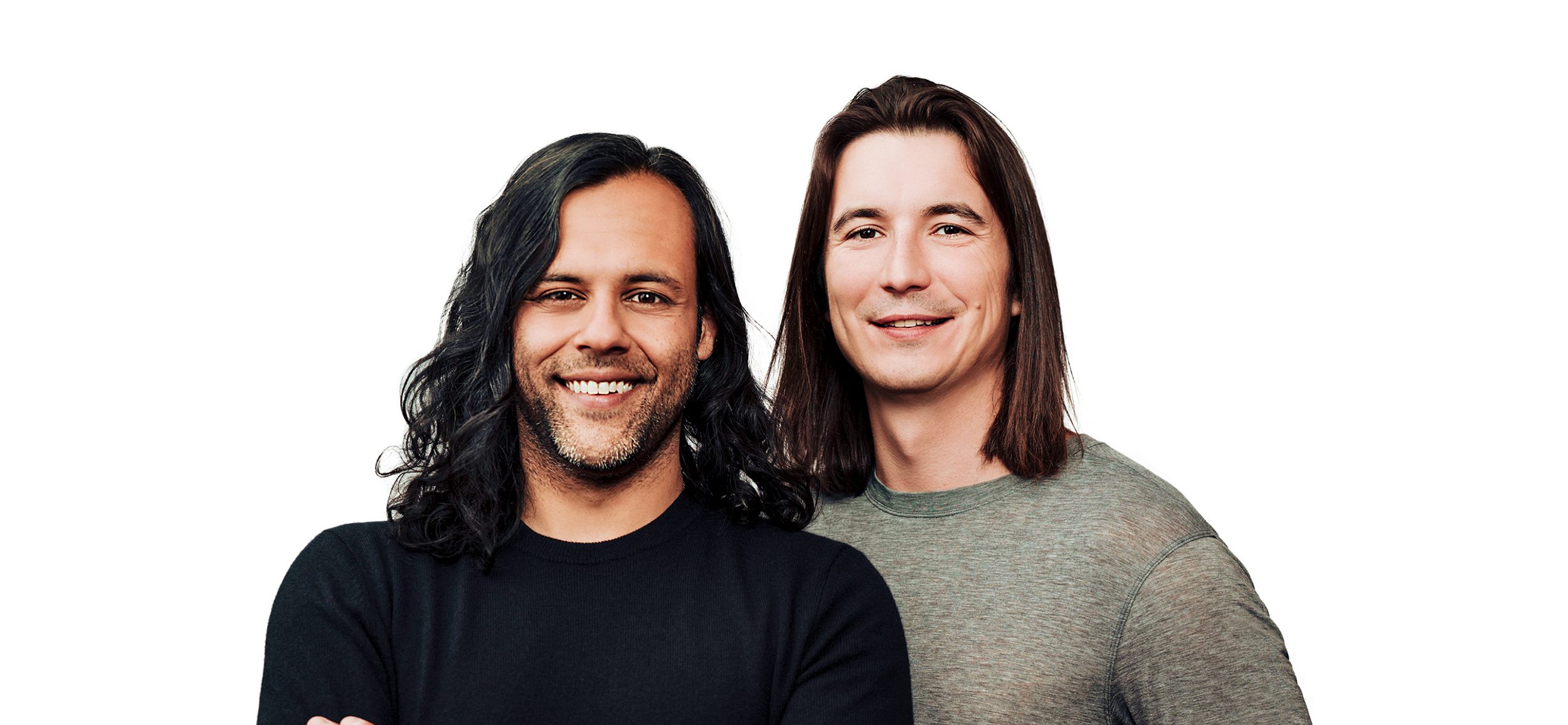On 29 July, after a bumpy few months and a fair share of troubled headlines, Robinhood founders Vlad Tenev, 34 and Baiju Bhatt, 36 each sold around $50 million worth of stock. The mobile-friendly discount brokerage, which pioneered commission-free stock trades, generated a profit of just under $2 billion in its public market debut.
Following going public, the two founders (who are both board members) are indeed excellently positioned to profit from the launch, whilst still controlling the vast majority of decisions for the future of the company. After the offering, Tenev and Bhatt now own all of Robinhood’s Class B shares, which have 10 times as much voting power as Class A shares, giving Tenev and Bhatt control of 26% and 39% voting power respectively.
Even before the IPO, both co-founders have cashed out tens of millions of dollars worth of shares and were estimated to have a net worth of around $1 billion each, after a funding round in May 2018 which increased Robinhood’s valuation to $6 billion.
Back in 2018, they both sold $55 million of Robinhood stock to investment firm DST Global in a secondary transaction. The next year, they took part in a $67.6 million tender offer available to “certain of our employee stockholders,” as the filing stated.
But what brought the two billionaire entrepreneurs to where they are today?
Early life and Stanford
Born in the coastal town of Varna in Bulgaria, Vlad Tenev and his parents moved to the US in 1992 when he was five. Raised by parents who both worked for the World Bank in Washington DC, he attended Thomas Jefferson High School for Science and Technology in Fairfax, Virginia and later was accepted at Stanford University, where he met Robinhood’s other founder and chief creative officer Baiju Bhatt. After completing his degree in Mathematics from Stanford, Vlad began a Mathematics PhD at UCLA, but his entrepreneurial side prevailed and he decided to drop out and start work with Bhatt.
Baiju Bhatt is the son of Indian immigrants, who moved to the United States when he was born. He grew up in Poquoson, Virginia and after high school, Bhatt completed a bachelor’s degree in Physics from Stanford University, followed by a master’s degree in Mathematics.
Revolutionising the brokerage industry
The pair met in 2005 when they were both undergraduate students at Stanford. Upon graduation, the two friends moved to New York City and started two finance companies that were selling trading software to hedge funds – an experience which made them realise how little Wall Street firms pay to trade stocks vs. the commission ordinary traders were charged for every trade.
Both Tenev and Bhatt closely followed the 2011 protest of Occupy Wall Street, which brought attention to the social and economic inequality, greed and corruption in financial services, as well as the influence big corporations have on government. Two years after moving to NYC, Tenev and Bhatt moved back to California to start Robinhood, with the mission to ‘democratise finance for all’ with a free, easy-to-use app, named after the legendary outlaw who steals from the wealthy to give to the poor.
The concept is unique, the app’s interface is efficient and frictionless and what once was a mystifying industry to many, now feels like a game. The app offers an expansive range of investments, including stocks, options and cryptocurrencies and instead of relying on commission fees, Robinhood earns from back-end payments, known as ‘order flow’, which it sells to professional traders who profit from being on the other side of the trade.
Robinhood was the first broker to pioneer commission-free trading, disrupting the entire industry and eventually forcing other major brokers to eliminate commissions. Tenev and Bhatt have managed to open the door to trading to millions of people, mostly millennials, with no experience in the field. They estimate that nearly half of all new US brokerage accounts in the last five years are Robinhood accounts. What’s more, 2020 was a record year for new trading accounts in the US thanks to the wave of enthusiastic first-time investors the COVID-19 pandemic has seen, whilst 2021 is shaping to attract an even higher number of new investors. Things are certainly looking even brighter for Robinhood, which currently has over 21 million active users.
The concept is unique, the app’s interface is efficient and frictionless and what once was a mystifying industry to many, now feels like a game.
But despite the success the COVID-19 pandemic has brought to the company, there have been some bumps along the road. Who would ever forget about the GameStop trading frenzy when the investing app became the focus of the controversy after its decision to freeze purchases of the stock in question? And what about the recent record $70 million fine by regulatory body FINRA, which brought attention to how Robinhood lost clients’ money due to chronic outages and incorrectly sending margin calls on millions of options trades, or the Forbes investigation from last August which revealed how the company generated the majority of its revenue through “payment for order flow,” or selling customers’ orders to trading titans like Citadel Securities?
One human life has been lost too. In June 2020, news broke out that Alex Kearns, a 20-year-old Robinhood trader, committed suicide after seeing a negative $730,000 balance on his account due to options trading. The company founders reacted swiftly and committed to tightening the app’s eligibility criteria, educational resources and upgrades to its user interface for customers trading options. This didn’t stop the Kearns family from suing Robinhood in a wrongful death suit.
Some may say though that these are the repercussions of being a pioneer – of developing a concept no one has attempted before, of trial and error, of having to learn as you go. The story of Tenev and Bhatt’s company certainly is a story of impressive growth and perseverance. Despite the hiccups, the Robinhood revolution shows no signs of slowing down and its founders are here to reap the rewards.









